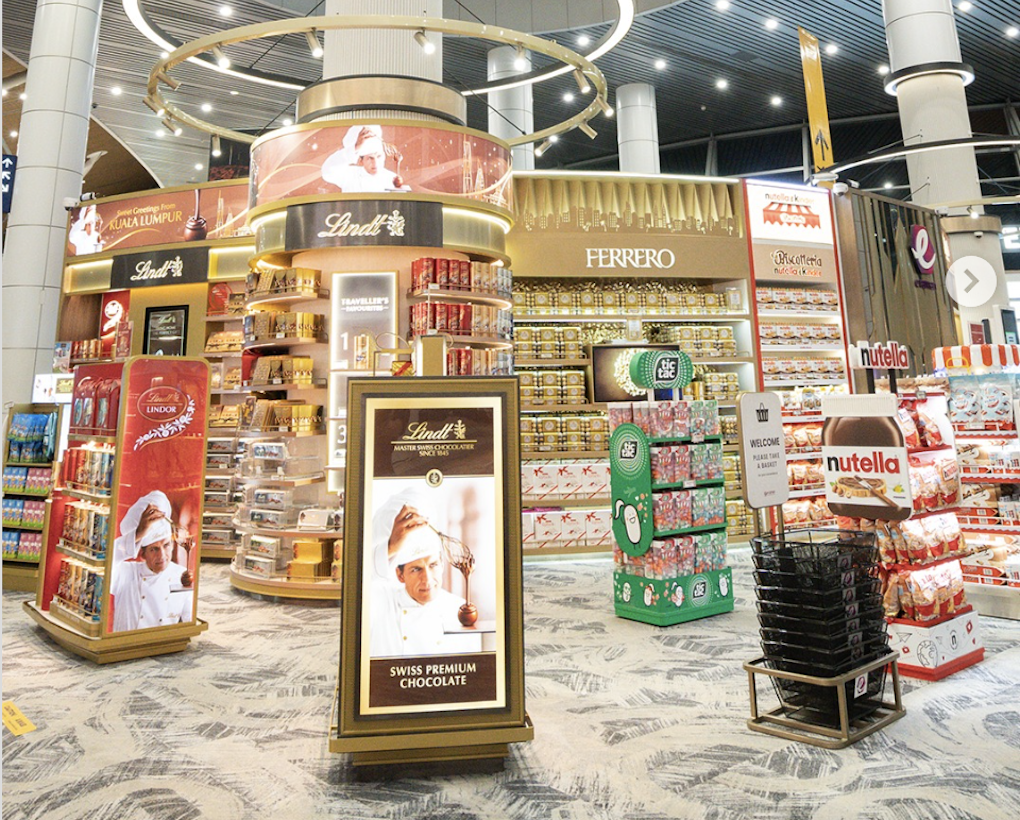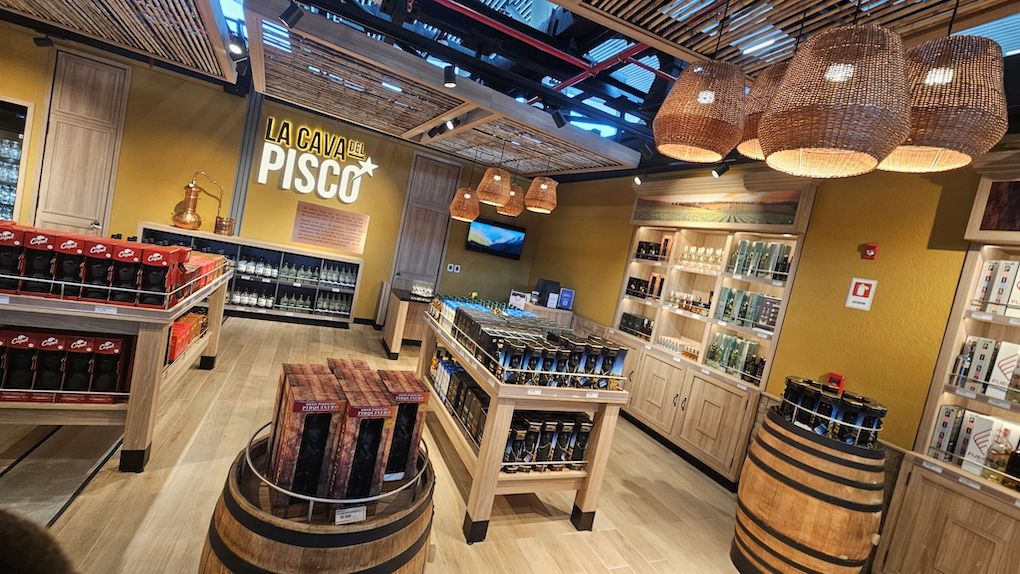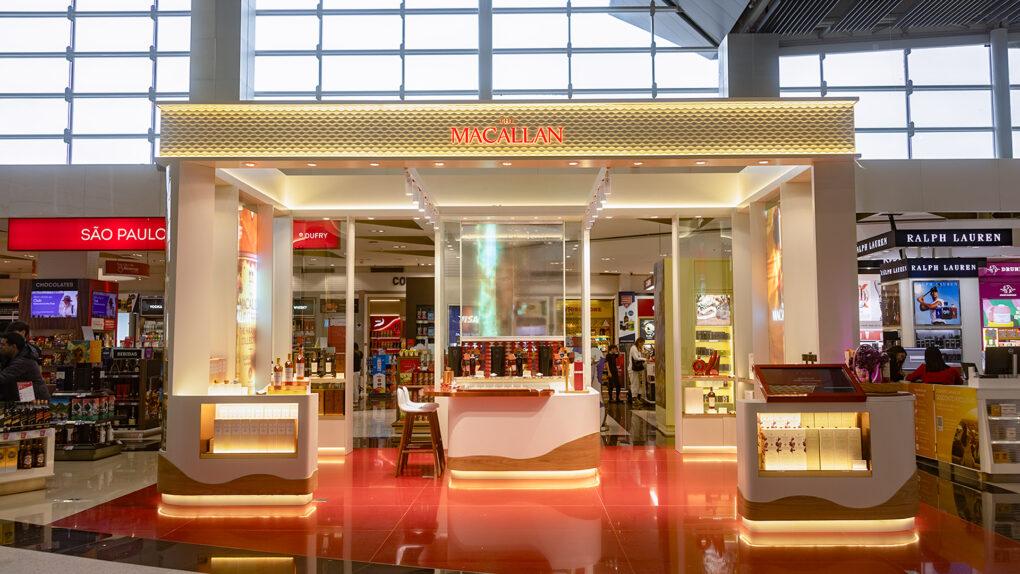CHINA. In major breaking news, leading Chinese government regulators today unveiled new regulations pertaining to pre-departure downtown duty-free shopping, which come into effect on 1 October.
The measures will transform the structural landscape of China’s travel retail industry with important repercussions for overseas retailers serving Chinese travellers.
The term ‘travellers’ used in the new measures refers to those who hold valid entry-exit documents and are about to depart the country by air or international cruise within the next 60 days (inclusive). They include but are not limited to Chinese travellers.
Travellers shopping in downtown duty-free shops must meet the following requirements:
(a) Hold valid entry-exit documents and have purchased outbound air tickets or international cruise tickets. Valid documents include passports, Exit-Entry Permit for Travelling to and from Hong Kong and Macao, Exit-Entry Permit for Travelling to and from Taiwan, Mainland Travel Permit for Hong Kong and Macao Residents, and Mainland Travel Permit for Taiwan Residents;
(b) Present their shopping receipts and valid entry-exit documents in person at the pick-up points to collect their duty-free goods;
(c) Shop at downtown duty-free shops where their departure port is located.
Reaction to the new downtown duty-free policyThe new measures are part of moves to boost the healthy and orderly development of China’s downtown duty-free shops. Observers said that the new policy will effectively boost domestic consumption in the second half, fuelling the country’s consumption upgrade while injecting new impetus into the recovery of the world’s second-largest economy. – Global Times In short, effective from October 1, 2024, all outbound travellers (vs. only foreigners before) will be allowed to purchase duty-free products at 19 downtown duty-free stores (and another 8 new ones to be opened) within 60 days before their departure. A key differentiator in the announced terms vs. earlier market expectations is that all purchases must be picked up at departure ports or airports and taken out of the country, rather than be delivered to the home directly or collected upon return which is generally much more convenient for Chinese travelers. The new condition seems to target mostly foreign travellers, encouraging more shopping in China. Similar to the policy relaxation of visas rolled out earlier this year which targeted foreigners – including 144-hour visa-free transit and visa waivers for selective countries’ visitors. The announced downtown DFS policy is highly similar to the policy in South Korea where the policy helped attract foreigners and encouraged more consumption downtown before departure. Compared with airport DFS, downtown DFS have added scope to 1) provide more SKUs in a larger store area and longer shopping time (within 60 days before departure vs. up to 2 hours at airport DFS), but 2) it may not be catering to local shoppers who could purchase products at current airport DFS and collect upon return from their outbound trips without having to carry their purchases along with them for their entire trip. With this, we believe the new downtown DFS policy could results in sales from airport DFS being diverted to downtown, though any potential dilution is likely to be limited at the current stage. As noted earlier, potential earnings impact from the new measure will depend on the pick-up revenue sharing rate (RSR), which has a large potential range from 0 to a maximum of 23% (current RSR for airport DFS sales).– Goldman Sachs Global Investment Research Outbound travellers will be able to explore downtown duty-free shopping in more Chinese cities and more easily access consumer goods of fashionable Chinese brands, an official statement said on Tuesday. – Xinhua |
In a joint statement today (27 August), China’s Ministries of Finance, Commerce, and Culture and Tourism, together with the General Administration of Customs and the State Administration of Taxation, said they had studied and improved the current downtown duty-free shop policy and with State Council approval had introduced a series of changes.
Here is a preliminary run-down on the policy. The Moodie Davitt Report will bring you further details, clarification and analysis soon.
The policy covers three key blocs as follows, which will become downtown duty-free shops able to trade under the new measures.
1. The six downtown duty-free shops in Beijing, Shanghai, Qingdao, Dalian, Xiamen and Sanya [not Haikou -Ed], currently operated by China Duty Free (Group) Co.
2. The 12 ‘foreign exchange’ duty-free shops in Beijing, Shanghai, Qingdao, Dalian, Nanjing, Chongqing, Hefei, Nanchang, Kunming, Hangzhou, Zhengzhou and Harbin currently operated by China Overseas Personnel Services Co (CNSC) and the Harbin foreign exchange duty-free shop run by China Travel Service (Hong Kong) Asset Management Co. These shops, which can only sell to returning Chinese travellers within a 180-day window, will be transformed into new-model downtown duty-free shops within three months from 1 October.
They will be able to commence business after Customs approval. Any that have not completed the transformation by the deadline will be closed. No further foreign exchange duty-free shops will be established after the implementation of this notice.
3. One downtown duty-free shop shall be established in the following eight cities: Guangzhou, Chengdu, Shenzhen, Tianjin, Wuhan, Xi’an, Changsha and Fuzhou.
The measures will be assessed over the ensuing two years by the Ministry of Finance working with the Ministry of Commerce, Ministry of Culture and Tourism, the General Administration of Customs and the State Administration of Taxation.
Key points of the new policy
- Travellers who can shop in the stores (including but not limited to Chinese travellers) are those who are due to leave the country by air transport or international cruise ship within 60 days (inclusive) and who have valid entry and exit documents.
- Duty-free shops in cities will set up pick-up points in the port exit (i.e. departures) isolation areas.
- Duty-free pick-up points shall not be set up in the port entry (i.e. arrivals) isolation area.
- Travellers shall pick up the goods purchased from downtown duty-free shops at designated pick-up points and take them out of the country at that time. Travellers are not allowed to purchase or reserve goods at downtown duty-free shops, deposit them at ports and pick them up when reentering the country.
Imported goods in downtown duty-free shops are exempt from customs duties, import value-added tax and consumption tax.
Domestic goods entering downtown duty-free shops are deemed to be exported, and value-added tax and consumption tax are refunded (exempted).
The above-mentioned goods sold in downtown duty-free shops are exempt from domestic value-added tax and consumption tax.
No shopping limit
There is no shopping limit for travellers purchasing goods in downtown duty-free shops. However shoppers must comply with the customs regulations that stipulate items carried in and out of the country should be limited to self-use and reasonable quantities.
If travellers carry the purchased duty-free goods out of the country and then bring them back into the country, they shall be subject to the management of imported articles and tax shall be levied or waived according to regulations.
No resale permitted
Duty-free goods purchased by travellers are for personal use and must not be resold in the domestic market.
Permitted product categories
Downtown duty-free shops will mainly sell food, clothing and accessories, luggage, shoes and hats, maternal and child products, jewellery and handicrafts, electronic products, perfume and cosmetics, alcohol and other consumer goods “that are easy to carry”.
Promoting Chinese wares
Downtown duty-free shops are encouraged to sell popular domestic products and include those with strong Chinese characteristics and from Chinese brands that help promote local culture and traditions.
New downtown duty-free shopping entities
In selecting these, local governments must refer to government procurement law and determine the downtown duty-free shop operating entities through competition [tendering -Ed].
Enterprises approved by the State Council as qualified to operate duty-free businesses nationwide can compete for the right to operate downtown duty-free shops.
More details and analysis to follow. ✈















